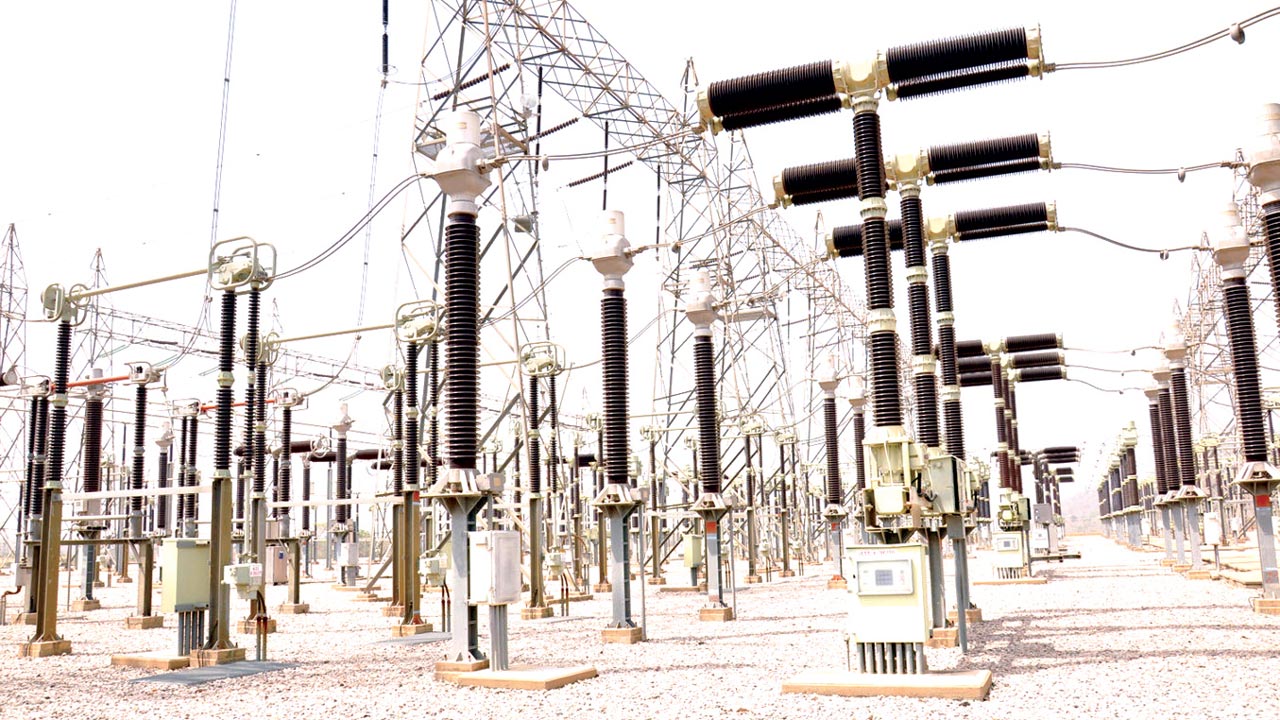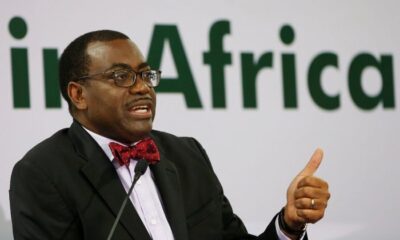Markets
Decentralised Renewable Energy as Magic Wand to Electricity Access
Published
8 years agoon

- Decentralised Renewable Energy as Magic Wand to Electricity Access
With multi-national oil companies looking more to the international market, where projects are huge and leaving the domestic gas market gasping for oil, Nigeria’s power sector doesn’t seem to be getting off the woods just yet.
Nigeria’s electricity power sector is largely dependent on gas. Low gas availability, occasioned largely by poor pricing, transportation infrastructure and a market that is skewed largely in favour of exports, has continued to plague Nigeria’s power sector over the years. This has, in turn, made a huge mockery of efforts to provide efficient and reliable electricity to the country’s large population.
Government spoke recently of a renewable energy plan. While there is limited information on actual implementation strategies, stakeholders are pointing to a new untapped possibility for solving Nigeria’s age-long energy crisis.
To improve electricity access, guarantee rural economic development and generally demystify supply, experts are pushing for Nigeria to pay attention to decentralised renewable energy (DRE).
At the forefront of this campaign is the Power for All Initiative, championed by international energy policy expert, Ify Malo and the newly formed Renewable Energy Association of Nigeria (REAN).
A renewable energy specialist, Dotun Tokun, described the concept as a world of untapped potentials. Tokun, who is the promoter of Solarmate Engineering Ltd., said: “DRE for rural Agribusiness, with proper financing plan is a win-win situation. Land for the panels would not be a problem. It will increase productivity of the plants, prevent/reduce rural to urban migration and provides gainful employment. Not forgetting the positive impact of renewables on the environment.”
On how renewable energy could become the game changer in Nigeria’s energy revolution, the Campaign Director for Power For All in Nigeria and Co-founder of the Clean Tech Hub, Ifeoma Malo, explained: “Nigeria’s current grid capacity is able to generate about 12,000 megawatts and yet, only 5,000 megawatts is actually available to meet the needs of the country’s teeming population. This means that about 60 percent of Nigerians lack access to the grid. This gap between demand for electricity and available supply means that many Nigerian businesses and home owners are into widespread self-generation of power for their commercial, industrial and residential uses.
“Furthermore, with an ageing grid system, several Nigerians connected to the grid face extensive power outages, due to low reliability. Therefore, the use of diesel fueled generators, as an alternative to the grid and kerosene lamps for the rural poor are still widespread and compensate for the lack of electricity supply across the country. The increased militancy on oil and gas pipeline means that there will be increasingly low reliability to generate power from the grid.
“However, there is another path-way that is cheaper, simpler and more sustainable to get electrified in Nigeria. That is decentralised renewable energy, which specifically involve mini-grid systems and stand-alone home systems. These systems are easy to deploy – usually within a six-month time frame; and the costs for the end user, especially when spread over time, are comparable to both grid based electricity connections. Decentralised Renewable Energy is certainly cheaper than the diesel and kerosene alternatives that many Nigerians currently deploy in their self-generation efforts.
“The market for decentralised renewables in Nigeria is at the cusp of a major take off. However, some of the market enablers for this market to truly emerge are yet to be in place. Despite little incentives from the government for private investor participation, we have seen increased interest and projects targeted at this market.
“There are several programmes and projects springing up in several rural and peri-urban communities across Nigeria, either as pilots or commercial ventures and are increasing, especially in urban centres across the country. These projects are funded either with capital from grant donors or through commercial partnerships, including bank loans and credit facilities. The projects range from stand-alone home systems (SHS), mini grid systems, and solar home appliances, such as, lamps and cooking stoves. Yet, for this market to scale up and meet the latent demand for electricity across the country, there has to be the right enabling policies and market incentives. It is also important to have clear targets and timelines for the decentralised renewable energy sector and broad support by stakeholders.
“This is why the preparations for the emergence of an industry association to help catalyse a collective voice for the sector is one of the most important things happening in recent times. This industry association aims to be a reputable umbrella association, supporting and enabling the sustainable growth of the renewable energy sector throughout Nigeria. The mission of the association is to promote all forms of renewable energy technologies into the mainstream of the Nigerian economy and lifestyle by emphasising the need for quality and best practices in the sector for the benefit of members, consumers and other stakeholders. The association also seeks to facilitate information dissemination, formulate proposals for improvements in the renewable energy sector and make recommendations to the responsible governing and policy authorities, amongst the other stated goals. We believe that decentralised renewable energy will play an important role in meeting these objectives, and help to activate and support the market in sustainable ways, particularly as this sub-sector is the quickest and cheapest way to grow the renewable energy industry and market overall.”
On ways to accelerate renewable energy rates and penetration, she called for the integration of rural access with decentralised renewable energy development.
“With the high demand for electricity amongst urban and rural dwellers, and with Nigeria having one of the best solar radiation rates in the world, achieving rural access electrification is a quick win, using decentralized renewable energy,” she explained. “With several countries in East Africa, such as, Kenya, Tanzania, and Uganda, already leading the way in deploying decentralised renewable energy to increase and optimise their electrification rates, particularly in rural communities, Nigeria cannot afford to be left behind. Although, financing the sector remains a challenge, the government, with active stakeholder participation, can make policies and build partnerships with the private sector to subsidise the cost of financing such projects in rural Nigeria to solve the country’s energy challenge.”
On his part, Segun Adaju, President of the Renewable Energy Association of Nigeria (REAN), said the opportunity for decentralised renewable energy is so huge that it has become hard to ignore.
He said: “It is clear that Nigerians have a choice—either to continue with the old pathway to electrification through on-grid methodologies, which has kept electricity access rates static for many years now, or choose a new path, which involves making decentralised renewable energy main stream to meet improved electrification rate. As many Nigerians, especially the growing workforce of the country, buoy by the teeming youth population depend on electricity to make ends meet, it is clear that turning around our current economic crisis, while growing and contributing to the GDP of the country, is dependent on deploying decentralized renewable energy. The time to gain independence from blackouts is now. The time to act is now, and decentralised renewable energy provides the way forward.”
Indeed, stakeholders are making a strong case for Nigeria to scale up the deployment of renewable energy solutions in the country through improved market incentives.
Among other things, they are asking for the abolition of VAT and import duties on renewable energy components brought into the country for projects.
Is the CEO and Founder of Investors King Limited. He is a seasoned foreign exchange research analyst and a published author on Yahoo Finance, Business Insider, Nasdaq, Entrepreneur.com, Investorplace, and other prominent platforms. With over two decades of experience in global financial markets, Olukoya is well-recognized in the industry.

You may like
-
Nigeria Joins BRICS as Partner Country, Strengthening Global South Cooperation
-
70 Million Poorest of The Poor Nigerians To Get N75,000 From FG
-
Nigeria Surpasses OPEC Quota with 1.51 Million bpd, Targets 2.06 Million in 2025
-
Global Investors Commit $7.6 Billion to Nigeria’s Development at AIF 2024
-
Nigeria-China Trade Strengthened as Grimaldi Introduces Direct Shipping Line
-
Nigeria’s GDP Records 3.46% Growth in Q3 Spurred by Non-Oil Sector













